Lise Hamlin has advocated for those with hearing loss for 25+ years. In her public policy role at HLAA, she helps those who experience barriers to employment, technology, public places and telecommunications – an experience made more meaningful by her own experience with hearing loss. Lise represents HLAA on multiple, high profile federal advisory committees, consumer coalitions and industry advisory groups, including AAPAA. A true leader in the field, she has taken part in developing and presenting on hearing assistive technology and emergency preparedness, and she has been nationally recognized for advocacy and community service, including as a recipient of TDI’s prestigious Karen Peltz Strass Advocacy Award.
Accessibility Today, Inclusion Tomorrow
With the rise of accessibility, disability inclusion can become reality for more and more people.
To help us understand what that might mean, we asked our partners on the AT&T Advisory Panel on Access and Aging (AAPAA) to weigh in. These national leaders in assistive technology, aging and cross-disability issues provide AT&T with regular, ongoing input on how we are doing on issues related to accessibility. They offer a rich and diverse perspective on the many facets of disability that informs our approach.
When posed a simple question, “What does inclusion mean to you?” their heartfelt and sincere responses illuminate what’s possible.
“Inclusion at work, school, home and in the community means we can contribute equally alongside our colleagues, friends, and family members. Inclusion means we are not an afterthought, but an equal member of the community. An equal part of life itself.”
HTML Editor Component
*Contents may not have visible height
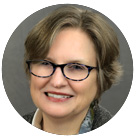
Lise Hamlin
Director of Public Policy
Hearing Loss Association of America (HLAA)
Director of Public Policy
Hearing Loss Association of America (HLAA)
“Inclusion means genuine respect: respect for similarities, respect for differences, respect for unique perspective that only varied life experiences can bring. Inclusion means the sum, the total of all voices, of all people, who have a stake in an outcome. Inclusion means remembering that we have, whether intentionally or unintentionally, forgotten others in the past. Inclusion means recognition and validation of everyone’s’ worthiness. Inclusion means creating a better, brighter reality.”
HTML Editor Component
*Contents may not have visible height
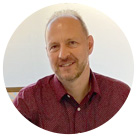
Lee Huffman
Accessible Community Development Strategist
American Printing House for the Blind
Accessible Community Development Strategist
American Printing House for the Blind
“For the last 15 years, I have been involved in determining how consumer technology is used, and can be improved, for use by people with disabilities. I have seen firsthand how the tech industry has evolved. Meeting accessibility standards used to be viewed as a burden within the industry, but now they view it as a competitive advantage. To me that’s an important step toward inclusion.”
HTML Editor Component
*Contents may not have visible height
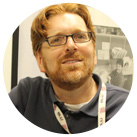
Ben Lippincott
Research Coordinator
Crawford Research Institute at Shepherd Center
Research Coordinator
Crawford Research Institute at Shepherd Center
“Inclusion isn’t one size fits all, and sometimes I feel it when I least expect it. Inclusion is the waitress who offers to cut my straw in half. Inclusion is when someone asks me what my access needs are, and what would help them to be met, rather than guessing or assuming. I think, at its heart, inclusion is about knowing that I’m thought about, that I’m heard, that I’m remembered. It’s a feeling of being welcomed and like I belong, and it’s powerful beyond words.”
HTML Editor Component
*Contents may not have visible height
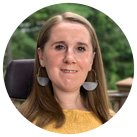
Heather Tomko
Outreach Coordinator
National Rehabilitation Research and Training (RRT) Center on Family Support
University of Pittsburgh
Outreach Coordinator
National Rehabilitation Research and Training (RRT) Center on Family Support
University of Pittsburgh
“To me, inclusion means that all people are respected, appreciated and capable of contributing to society regardless of ability, community type, disability, ethnicity, gender, healthcare needs, sexual orientation or skin color.”
HTML Editor Component
*Contents may not have visible height
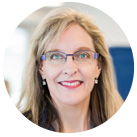
Amy Van DeVelde
Technology Education Director
The Oasis Institute
Technology Education Director
The Oasis Institute
